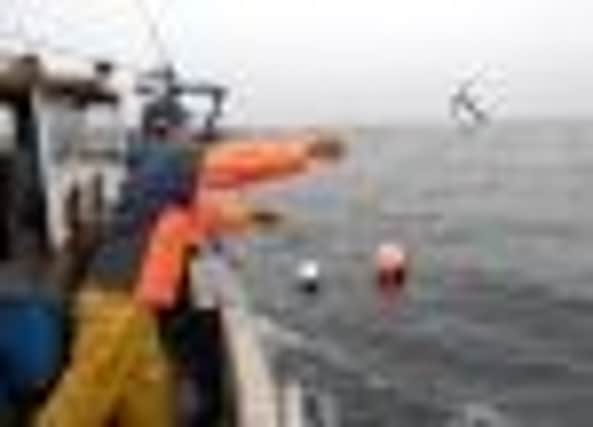Ban on discarding dead fish threatens rare birds


European Union countries voted last week to outlaw the discarding of millions of tonnes of dead or dying fish which are thrown back into the sea because they have been caught in excess of strict quotas.
But while the move should help safeguard fish stocks in the long term, experts fear the change will seriously reduce populations of birds such as great skuas, which have come to rely on discards as a key source of food.
Advertisement
Hide AdAdvertisement
Hide AdMost of the world’s 16,000 remaining great skuas are in Scotland, where they are known as bonxies. They have eaten discards for decades since overfishing reduced levels of sandeels, their natural prey.
Ornithologists warn that phasing out discards also poses a threat to other endangered seabirds. Previous moves to limit wasted catches in the North Sea led to an increase in great skuas switching to killing smaller seabirds for food, particularly the black-legged kittiwake.
Environmental groups now want the Scottish Government to formally designate a network of marine protected areas around the coastline to protect sandeel stocks and provide more natural food for species such as the skua.
RSPB Scotland, which has commissioned research into the impact of the ban, stressed that while it supports the decision it is concerned about the potential effects in the short term.
Kara Brydson, RSPB Scotland senior marine policy officer, said: “The RSPB still completely supports the ban but the knock-on effects are complicated.
“It won’t be like turning off a tap [because the ban is being phased in] but there will be some areas where some species may find it difficult for a while.
“Great skuas are generalist feeders so they may switch to feeding on other seabirds, which is a real concern at a time when other species are already under threat. Kittiwakes are an iconic bird that has already suffered massive declines.”
The RSPB said the issue highlighted the need for designated marine protected areas, which are currently under consultation, to safeguard seabirds and the valuable wildlife tourism sector which they support.
Advertisement
Hide AdAdvertisement
Hide AdBrydson added: “Seabirds are such an important revenue-earner when you think about where people go to see these birds, like the Northern Isles. The ban is absolutely essential to the long-term stability of the ecosystem but we also have to make sure that seabirds are properly protected.”
The Scottish Wildlife Trust (SWT) echoed calls for improved safeguarding of Scotland’s seas and better fishing practice to restore natural food sources such as the sandeel to help birds survive.
Alex Kinninmonth, SWT marine policy officer, said: “We have to welcome the agreement that will bring about an end to the wasteful practice of discards. But rather than mourn the loss of this unreliable food source for scavenging seabirds such as the great skua, we must now look at improving fisheries management to ensure that other prey are available and a natural balance is restored.
“Marine protected areas that safeguard sandeel are also vital if we are going to recover the health of our seas and retain iconic species.”
Earlier studies have shown that large numbers of great skuas, which mainly live in Shetland and Orkney, have stopped breeding in recent years because of a lack of food.
Good breeding years for the birds have also been found to coincide with a fall in survival rates of black-legged kittiwakes in Shetland.
Last year, the RSPB warned that kittiwakes were declining at an alarming rate: numbers have more than halved since the mid-1980s across the UK.
Some of the steepest declines were in the far north of Scotland, particularly in Orkney and Shetland where around a fifth of the UK population return to breed each year.
Advertisement
Hide AdAdvertisement
Hide AdThe ban agreed last week by European fisheries ministers at a key meeting in Brussels will end the waste of an estimated million tonnes of unwanted fish each year.
Fish are thrown back because they do not meet quota restrictions on the size, amount and type of fish allowed to be caught and sold.
The new ban, which still has to be formally approved, will see a gradual reduction of discards over the next six years until the practice is completely outlawed in European waters from 2019.
Twitter: @ScotsmanJulia